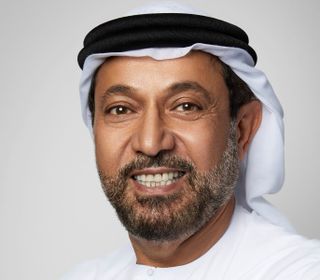Covid-19 fuels Adnoc to speed up its digital transformation journey
Higher connectivity and connected workers to be name of the game after pandemic, top IT official says

Higher connectivity and connected workers will be the name of the game after Covid-19 for UAE’s largest oil and gas producer - Abu Dhabi National Oil Company (Adnoc).
Speaking to TechRadar Pro Middle East, Abdul Nasser Al Mughairbi, Senior Vice-President for digital at Adnoc, said that the pandemic has helped us to speed up the digital transformation and taught us how ”we can work remotely, monitor remotely, and the realisation of how important the data is and how important it is to be connected.”
“We are a resilient organisation but it [Covid-19] taught us things that we need to improve and speed up interconnectivity with the sites. It will be a different world when we come out of Covid-19.”
After Covid-19, he said that it will lead us to a more centralised approach in terms of operating its plants, where experts can sit in the centre and see everybody in the organisation and can meet everybody virtually on a daily basis rather than going to the sites.
“Covid-19 has not impacted us heavily as we went into remote working from homes while our Panorama Digital Command Centre and 5G cellular technology have helped us to interconnect to receive data as we were working in the office but our production has not been impacted,” he said.
Panorama is a key part of Adnoc’s ongoing strategic investments in digitisation and artificial intelligence (AI) to enable it to drive greater efficiency, optimise performance, and respond to complex market dynamics with agility and speed, as it continues to deliver on its 2030 smart growth strategy.
“We are doing remote assistance and have already tested it. When you start up a few facilities or coming back from a turnaround, we need experts’ advice on startups and we usually use to fly them into the site and they used to spend a few days at the sites. Now, we don’t need to as we use video conferencing tools to link plant operators with the technicians directly and have discussions in real-time,” he said.
Are you a pro? Subscribe to our newsletter
Sign up to the TechRadar Pro newsletter to get all the top news, opinion, features and guidance your business needs to succeed!
Panorama consists of software and hardware from multiple vendors and in-house capabilities and Al Mughairbi said that “no vendor in the world has the solution for everything.”
Al Mughairbi is responsible for managing Adnoc’s digital transformation and driving the adoption of new digital technologies across Adnoc’s value chain, including its 14 subsidiaries and joint venture companies.
He said that Adnoc started its digital journey about two-and-a-half years ago.
“We have built a strong foundation for automation and brought all the data into a single location with the Panorama for real-time monitoring of all our assets,” he said.
Predictive maintenance platforms help cut costs
Adnoc’s subsidiaries were working independently with different shareholders and different mandates but by deploying Panorama, Al Mughairbi said that they have speeded up a lot of processes and linked all the production data and technical data to a single version to generate operational insights and recommendations using smart analytical models, AI and big data.
Even though Panorama was used initially for production data, he said that they now have one of the largest predictive maintenance platforms for equipment such as processors and pumps.
“The reliability and integrity of the equipment and pipeline are critical to our operation. By using predictive maintenance platforms, it allowed us to cut operating costs, allowed us to use the equipment longer and avoid catastrophic failures. Panorama has generated over $1 billion (AED 3.67b) in business value since its inception,” he said.
In reality, he said that Adnoc knows the potential time of the failures of the equipment and can plan and change it accordingly without impacting production.
“We have been using sensors or IoT from the 1960s and data was flowing into our control room. We will not use technology for the sake of technology unless we have a customer and a user for it to generate value,” he said.
Moreover, he said that oil and gas sectors were always at the forefront of technology and technology was the cornerstone that made the possibility to extract oil and gas and process it.
“We believe in being forward-thinking in our digital investments and are committed to lead the way with our digital transformation efforts to drive further value. We continue to responsibly advance projects for the next phase of our digital journey, including expanding our AI solutions, rolling out new blockchain applications, and enhancing our digital modelling capabilities,” he said.
“When we buy software or a system we end up using only 50% of that while the other 50% is not utilised. One of our first areas of focus is to fully utilise the operational technology which we have installed. Best practices in one area will be moved to other areas of operations in an organisation,” he said.
Most Popular




